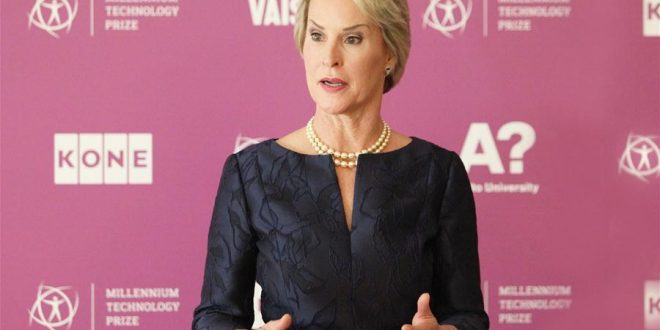Frances Arnold, an American biochemical engineer and a professor of chemical engineering, bioengineering and biochemistry at the California Institute of Technology in Pasadena was awarded $1.2 million Millennium Technology Prize for her discoveries in “directed evolution” in Helsinki in Finland last Tuesday.
With her selection, Frances Arnold is the fourth U.S. Citizen to win the prestigious Millennium Technology Prize from the Technology Academy Finland. Directed evolution was first pioneered in the 1990s.
“Awarding Frances Arnold’s innovation is indeed very timely, as a number of countries, including Finland, are aiming at clean technology and green growth,” said Marja Makarow, the chair of the Technology Academy Finland (TAF), in an announcement for the award.
Arnold is the Dick and Barbara Dickinson Professor of Chemical Engineering, Bioengineering and Biochemistry at Caltech. She is the first woman to be elected to all three branches of the National Academies: The National Academy of Engineering, the Institute of Medicine and the National Academy of Sciences. Arnold first came to Caltech as a visiting associate in 1986.
TAF described her as a pioneer in a “previously male dominated field,” something Arnold hopes will inspire others.
“I certainly hope that women can see themselves in my position someday,” Arnold said in a statement. “I hope that my getting this prize will highlight the fact that yes, women can do this, they can do it well and that they can make contributions to the world and be recognized for it.”
Her method of directed evolution creates mutations in the DNA of proteins, similar to the evolutionary processes found in nature, to produce new properties.
“It’s redesign by evolution,” Arnold said. “This method can be used to improve any enzyme, and make it do something new it doesn’t do in nature.”
The modified proteins have been used in everything from biofuels to pharmaceuticals, agricultural chemicals and more. Enzymes have replaced toxic chemicals in industrial processes, according to Caltech.
“My entire career I have been concerned about the damage we are doing to the planet and each other,” Arnold said. “Science and technology can play a major role in mitigating our negative influences on the environment. Changing behavior is even more important. However, I feel that change is easier when there are good, economically viable alternatives to harmful habits.”
David Tirrell, a professor of chemistry and chemical engineering at Caltech, said in an email that he believes TAF selected Arnold because the impact of her work has “become apparent to scientists and engineers in many fields.”
“Directed evolution has already changed the way in which scientists and engineers develop new enzymes and therapeutic proteins,” he said. “The improved stability and altered activity of enzymes, achieved through directed evolution, will create new energy technologies and more efficient processes for manufacturing drugs and other chemicals, while the evolution of protein therapeutics will play a key role in the development of new strategies for the treatment of injury and disease.”
Agencies/Canadajournal
 Canada Journal – News of the World Articles and videos to bring you the biggest Canadian news stories from across the country every day
Canada Journal – News of the World Articles and videos to bring you the biggest Canadian news stories from across the country every day



